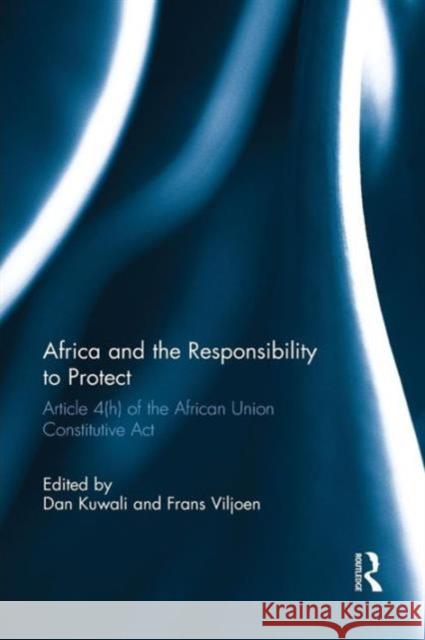Africa and the Responsibility to Protect: Article 4(h) of the African Union Constitutive ACT » książka
Africa and the Responsibility to Protect: Article 4(h) of the African Union Constitutive ACT
ISBN-13: 9781138659186 / Angielski / Miękka / 2016 / 434 str.
Africa and the Responsibility to Protect: Article 4(h) of the African Union Constitutive ACT
ISBN-13: 9781138659186 / Angielski / Miękka / 2016 / 434 str.
(netto: 213,21 VAT: 5%)
Najniższa cena z 30 dni: 216,55
ok. 22 dni roboczych
Bez gwarancji dostawy przed świętami
Darmowa dostawa!
Situations of serious or massive violations of human rights are no longer purely of domestic concern, and sovereignty can no longer be an absolute shield for repressive governments in such circumstances. Based on this realization, the international community has recognized a responsibility to protect individuals in states where their governments are unable or unwilling to provide protection against the most serious violations. However, so far, only one intergovernmental organization, the African Union (AU), has explicitly made the right to intervene in a Member State part of its foundational text in Article 4(h) of its Constitutive Act. Although there have been cases of Article 4(h)-type interventions in Africa, the AU Assembly has not yet invoked Article 4(h) explicitly. This book brings together experts in the field to explore the potential application of Article 4(h), and the complexities that may explain its non-invocation so far. Although Article 4(h) is noble in purpose, its implementation faces several legal and policy challenges given that the use of force penetrates the principles of state sovereignty and non-intervention - the very cornerstones upon which the AU is founded. This book considers these issues, as well as the need to reconcile Article 4(h), in so far as it allows the AU to exercise military intervention to protect populations at risk of mass atrocities, with the provisions of the Charter of the United Nations. Drawing from the insights of law, political science, diplomacy and military strategy, the book offers a unique combination of multi-disciplinary expertise that harnesses the views of a diverse group of authors, focused on the legal, policy, and practical insights on the implementation of Article 4(h) and the responsibility to protect in Africa in order to provide concrete recommendations on how to end mass atrocities on the continent











